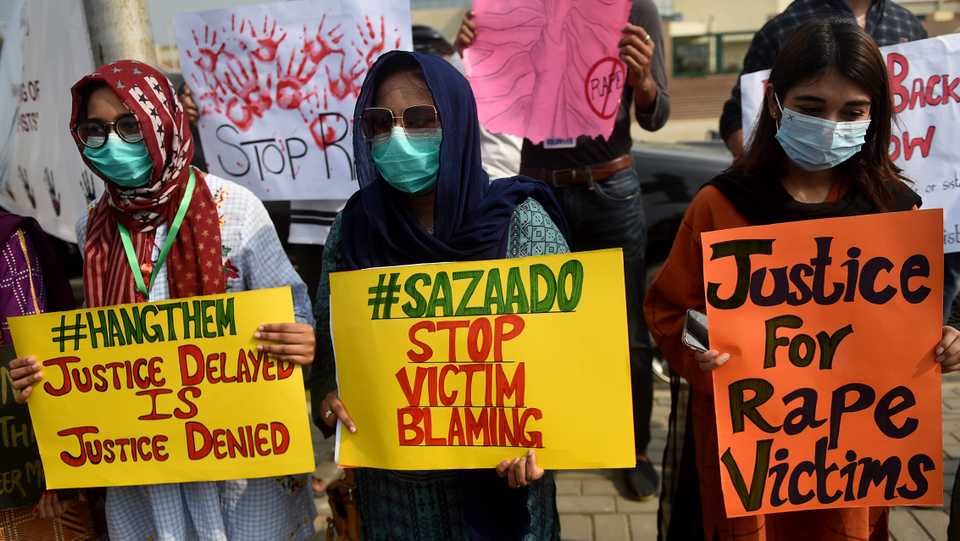
Pakistan’s Prime Minister Imran Khan has said that the worst sex crimes should be punishable by chemical castration, following an arrest in a gang-rape case that has prompted nationwide protests.
Hundreds of women have taken to the streets of cities across Pakistan in recent days after a woman was raped in front of her two children when her car ran out of fuel near the eastern city of Lahore.
The case attracted additional anger after a police official seemed to blame the victim because she was driving at night without a male companion.
READ MORE: Outrage in Pakistan after police chief blames victim of gang rape
Asked about the case, Khan said the worst sex crimes should be punishable by public hangings, but added this could impact trading deals with partners that oppose the death penalty, such as the European Union.
“What I think is that there should be chemical castration, I have read it is happening in many countries,” Khan said in an interview with Pakistani news station Channel 92.
“The way murder is graded: First-, second- and third-degree. This should also be graded, and for first-degree (sex crimes) there should be castration.”
Chemical castration involves using drugs to reduce a person’s libido.
One suspect arrested
Khan's comments came after police arrested Shafqat Ali, one of two suspects in the gang-rape case.
"His DNA has matched, and he has confessed to the crime," Punjab province Chief Minister Usman Buzdar said on Twitter.
A senior police official confirmed the arrest, adding that a manhunt was ongoing for the second suspect.
Following last week's incident, Lahore police chief Umar Sheikh faced an angry backlash and calls for his resignation after suggesting the rape was at least partially the victim's fault.
Sheikh apologised on Monday.
Rape is notoriously difficult to prosecute in Pakistan, where women are often treated as second-class citizens.
READ MORE: Pakistani police say gang rape suspects identified
Legal expert Osama Malik told AFP the rape conviction rate can be as low as two percent.
"This drops even lower in cases where a minor has been raped. That is one of the reasons that rape is rarely reported," he said.
Malik also blamed the societal stigma attached to sex crimes and the "abhorrently misogynistic attitude" of many police officials for the underreporting of rape cases.
Lapses during the collection of forensic evidence and shoddy prosecutorial practices also contribute towards "abysmal" conviction rates, he added.










Discussion about this post